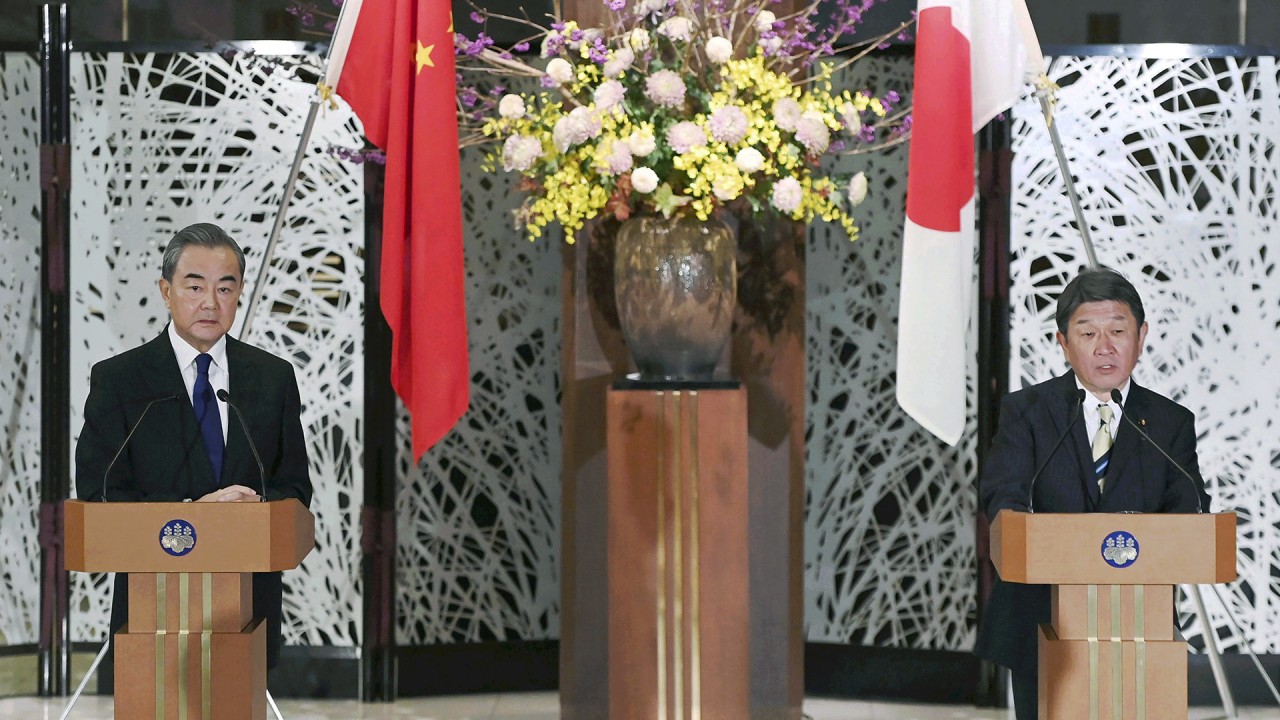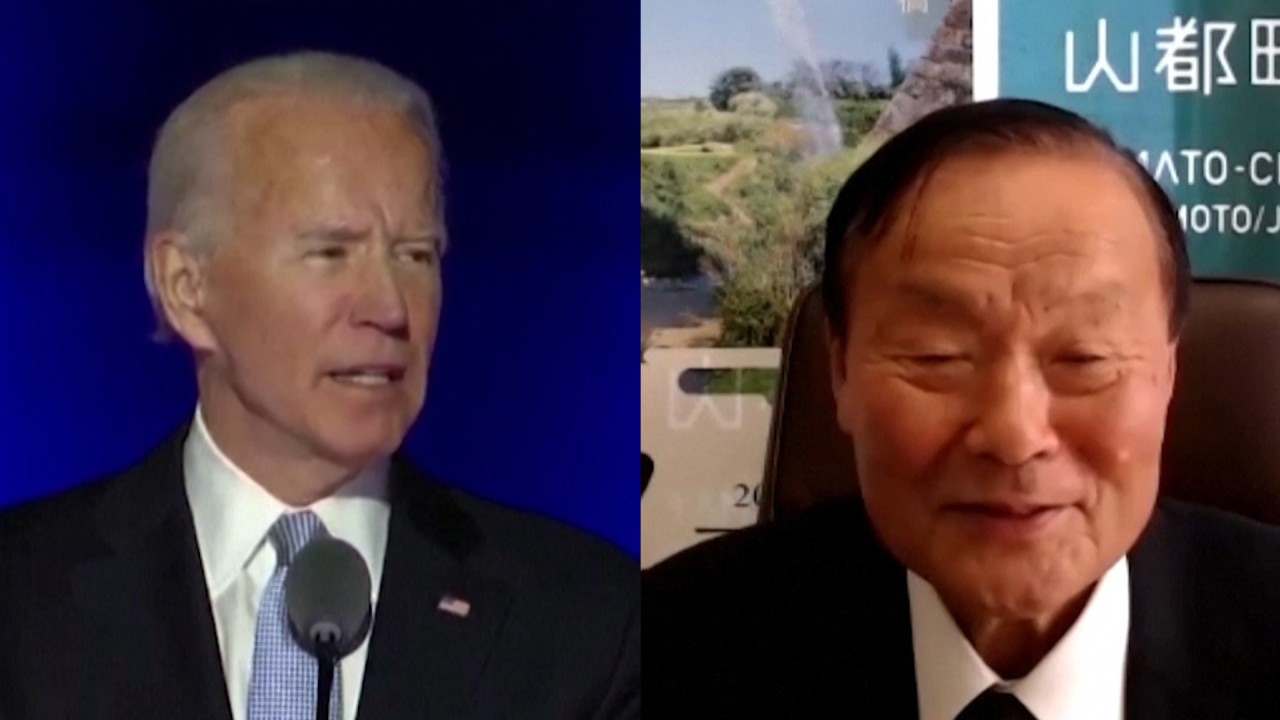
Japan calls on China to take ‘positive action’ on Diaoyu maritime dispute in talks as Wang Yi meets Yoshihide Suga
- Prime Minister Suga raises concern over islands and situation in Hong Kong during meeting with visiting Chinese foreign minister
- Wang says he relayed a message from the president that Beijing is keen to build ‘good working relations’ with Japan’s new leader
“A stable relationship between the two countries is important not only for Japan and China but also for the region and the international community,” Suga reportedly told Wang during the meeting.

The meeting was the first high-level exchange between Beijing and Tokyo since the new Japanese leader took office in September, and marked the end of Wang’s two-day visit to Japan.

01:44
China, Japan to start 'business track' travel plan by end of month
They also agreed to hold an economic ministers’ meeting next year to strengthen cooperation on environmental protection, health care, e-commerce and innovation, Kyodo reported.
Explained: Diaoyu/Senkaku islands dispute
Analysts say these developments suggest efforts to build on improving relations between the two East Asian rivals following decades of animosity over territorial and historical disputes, and at a time when China’s ties with the US have rapidly deteriorated.

00:31
Japanese PM Suga: US presidential election won’t change close ties
Xi was due to visit Japan in spring. But negative public opinion towards China has been rising in the country over the pandemic, Beijing’s aggressive posturing near the Diaoyus and its handling of anti-government protests in Hong Kong, leading to questions over whether Tokyo should roll out the red carpet for the Chinese leader.
“Japan’s policy towards China has always depended on the US’ China policy … so the possibility of improved ties between China and the US under a Biden administration could mean more momentum for Sino-Japanese ties to improve,” said Pang Zhongying, an international relations expert at the Ocean University of China.

02:18
Meet Japan’s ‘Jo Baiden’
During their meeting, Wang and Motegi discussed issues surrounding US-China relations for a “considerable time”, according to Kyodo, quoting a Japanese foreign ministry official who did not give further details.
Suga was among the first world leaders to speak by phone with the US president-elect, a conversation in which Biden reportedly provided assurance that Article 5 of the Japan-US Security Treaty would be applied to the Diaoyus, meaning Washington would defend Tokyo if a conflict broke out over the islands.
“Biden’s assurance has put Japan in an advantageous position in countering China, but their common interest in economic cooperation will bring Japan closer to China,” according to Liu Jiangyong, a specialist in China-Japan relations at Tsinghua University.

